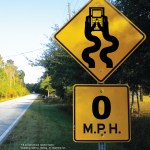environment
"Glaciers are almost gone from Glacier National Park." -Donella Meadows
This world is full of beautiful things that are simply awe-inspiring. Some of them are very much man-made, such as this 2007 song by Ricky Skaggs and Bruce Hornsby,
Crown Of Jewels.But others took thousands of years to form.
Image credit: deleted flickr user, of Franz Joseph Glacier in New Zealand.
In many great places all over the world, glaciers are an incredible wonder to behold. Carving valleys, rivers and lakes over thousands of years, they are one of our planets great examples of how slow processes can make…
After the 2010 elections in the USA, headlines proclaimed, "
href="http://www.theolympian.com/2011/01/08/1498746/with-new-republican-majority-let.html">With
new Republican majority, let the investigations begin," and "
href="http://www.mmail.com.my/content/59595-new-republican-majority-congress-promises-tough-ride-obama">New
Republican majority Congress promises a tough ride for Obama."
One of the big targets for investigations:
href="http://www.thegwpf.org/science-news/2508-a-climate-skeptic-with-a-bully-pulpit-in-virginia-finds-an-ear-in-congress.html">climate
science.…
Source. Second place winning design, from Kayla Rivera at Valencia CC, Wiley Student Advertising Design Challenge: Texting & Driving Don't Mix
Any driver knows the dangers of texting. Yet this practice has become commonplace. Dr. Robin Landa recently challenged students to design an ad campaign about the dangers of texting and driving; the design above is one of my favorites.
But texting can also save lives, even for the illiterate. Let me explain.
There are emerging open source technologies, based on network science and crowd sourcing that promise to transform how we respond to…
Source.
There is a great need for innovation that can maximize how we use resources. Imagine this challenge - design and build a home using recycled or re-purposed materials - with a budget cap of $200. Derek Diedricksen from Massachusetts accomplished this not only under budget, but with some charm. Sorry - no garage or jacuzzi, and you might need a sleeping bag.
As reported on The New York Times blog House Proud:
Checkout the slide show here.
At about 24 square feet, the Gypsy Junker, made primarily out of shipping pallets, castoff storm windows and a neighbor's discarded kitchen…
Some of the best moments in my job as a Weizmann science writer are the times when a scientist I'm interviewing slips in a finding that shifts my understanding of how the world works. Not long ago, for instance, I was speaking with a researcher about his work on phytoplankton. Now, the fact that phytoplankton release about half of all the free oxygen on the planet should be an eye-opener to anyone, and a reminder of the importance of ocean health. (But that wasn't the surprise.)
Dr. Assaf Vardi researches the chemicals that phytoplankton produce to communicate. Of course, all sorts of…
Co-authored with Dr. Norma Bowe and originally published on Truthout.org.
Science and the news media sometimes occupy different worlds. Journalists rely on scientists for the latest findings, but can be drawn to controversy and provocation because it increases readership, sometimes looking for disparities to make a point. Scientists want nothing of it; their conclusions are guided by data. If a mistake is made or data are misinterpreted, any inconsistent findings are ultimately eliminated by the self-correcting nature of science.
As reported in today's Atlanta Journal Constitution, earlier…
Changing our energy infrastructure from one that contributes to climate change to one that is renewable and sustainable poses enormous challenges technically, politically, socially, and economically. There isn't going to be a single solution, but a combination of technological changes, policy changes, efficiency gains, and adaptations to local environments will likely go a long way to making our current system better.
But there is a big difference between better and good. In Cradle to Cradle: Remaking the Way We Make Things, architect Bill McDonough and environmental chemist Michael…
It's a triumph of hope over reason, and that means the residents of the Kiribati Islands, an archipelago of tiny islands with an average altitude of 6.5 feet, are doomed. They've got faith, you know, but one thing they haven't got is any reason. NPR reports on their dire situation as the waters slowly rise and the climate changes:
"I'm not easily taken by global scientists prophesizing the future," says Teburoro Tito, the country's former president and now a member of Parliament.
Tito says he believes in the Biblical account of Noah's ark. In that story, after God devastates the world with…
One organism's trash is another organism's treasure. Our cellular wastes, carbon dioxide and water, nourish plants, which with added energy from sunlight produce the oxygen and sugars that we need to survive. At microscopic scales, these cycles of waste and food can get much more complicated, with many species of microbes working together to survive in harsh environments with limited nutrients.
When organisms (like us) digest sugars made of carbon (C), hydrogen (H), and oxygen (O), they split them up into carbon dioxide (CO2), hydrogen ions (H+) and high-energy electrons (e-) that were…
I had a great conversation with Maggie Koerth-Baker from BoingBoing for bloggingheads.tv Science Saturday. We talked about all sorts of sciency stuff, including her upcoming book on the challenges of renewable energy, synthetic biology, the similarities between cheese and the human body, women in science/blogging, and octopus brains. I had a lot of fun chatting with Maggie and I learned a lot, and I hope you will too!
This time of year I've repeatedly been taking part in the Global Population Speak-Out, reminding my Dear Readers that a lot of humanity's main problems could (and will) be solved by shrinking the planet's human population drastically. It's up to us: either we quit having enough children to replace the people who die, thus easing population down over centuries, or our numbers will crash catastrophically though war, famine and pandemics. In other words: let's turn down nativity or we will see mortality turned up on us, each producing similar effects.
It is in my opinion unethical for anyone to…
For atmospheric carbon dioxide levels to stabilize, this chart clearly shows, the world's major emitters and smaller countries will have to reduce emissions.
If you've ever wondered about how each nation contributes to the global carbon "footprint," take a look at this compelling graphic.
The left "footprint" displays recent data from the U.S. Energy Information Administration. The size of each circle - in some cases a "heel" or a "toe," is proportional to the carbon emissions estimated for each nation.
The right "footprint" shows the same data, but expressed per capita so that you can…
Lingering 1989 Exxon Valdez oil in beach sediments in Prince William Sound, Alaska
I clearly remember the announcement of the oil spill from the Exxon Valdez in 1989. The event was so upsetting that I refused to purchase gas from Exxon for decades.
Now, twenty one years later, an exhibit by artist Carole Fisher opens today at the Minneapolis College of Art and Design demonstrates the environmental damage that remains, in 2010.
As politicians invoke "Drill, Baby, Drill," I question whether the ripple effects over generations have been considered.
According to the artist:
"Many years later,…
My recent posting on deepwater oil drilling raised questions about alternative energy sources. The news of more and more permits allowing deepwater oil drilling is discouraging given available alternative fuels, but understandable.
Here's why.
A recent Science publication by Richard Kerr provides an historical perspective of energy production and consumption since the 18th century. It is no surprise that fossil fuels are so popular, because:
A coal mine or oil field, for instance, yields five to 50 times more power per square meter than a solar facility, 10 to 100 times more than a wind…
The final report from the National Commission on the BP Deepwater Horizon Oil Spill and Offshore Drilling was just recently submitted to President Obama. Will lessons be learned from this disaster?
The announcement today does not bode well. I fear that we will be paying for the BP oil spill for generations in ways well beyond financial losses. According to The New York Times Green blog: {bold added from my emphasis}
...signs are emerging every day that deepwater drilling is expanding around the world.
On Tuesday, Australia's resources and energy minister announced that BP had secured…
With The Symbiotic Household, Elliott P. Montgomery seeks to find answers to problems caused by climate change. Low-cost, low energy solutions are proposed through complex genetic engineering of domesticated insects--"What better way to deal with a future need than with a future technology?"
The project is deliberatively provocative; "By offering a problematic answer, I want to encourage viewers to question the entire scenario and thereby take part in the discussion." What do you think?
via we make money not art
Dino egg.
Awwww....
Just reported in this week's issue of Science:
A report of remains of a four foot dinosaur, ten to fifteen pounds, some 230 million years old. Perhaps not so sweet.
From The New York Times:
the little dinosaur was also a fleet-footed meat eater, with an agile body and long canines that were ideal for digging into prey.
From the paper's Abstract in Science:
Upper Triassic rocks in northwestern Argentina preserve the most complete record of dinosaurs before their rise to dominance in the Early Jurassic. Here, we describe a previously unidentified basal theropod,…
Image source: NOAA.
I am not a climatologist, but these recent data from The National Oceanic Atmospheric Association (NOAA) got my attention.
There has been much discussion about "global warming," but relatively little attention has been given to a more descriptive term: "global weirding," coined by The New York Times reporter Thomas Freidman. There have been extreme shifts, colder and hotter, both in the air and in the oceans, and data from 2010 is a record.
One report concludes:
The race is over and the results are in: 2010 tied with 2005 for the title of the warmest year on record…
"Our situation deteriorates" (since the elections) November 30, 2010
Today marks one year since the disastrous earthquake in Haiti. As we remember the thousands of lost lives, the injured and now the recovering citizens in the face of a cholera epidemic, I wanted to share their voices.
Yesterday, I attended a lecture in Washington, D.C. by Dr. Fritz Deshommes (University of Haiti), Vice Chancellor of Research. Filled with emotion about the loss and devastation after the earthquake last year, he emphasized the importance of science and technology in dealing with a natural catastrophe.…
When climate change denialists give you that silly song-and-dance about scientists flip-flopping on predictions about warming, show them this video from 1989. Not only is it Isaac Asimov (yay!), but he talks about making this same argument, that we ought to worry about the greenhouse effect, for 20 years.
(via Climate Progress)










